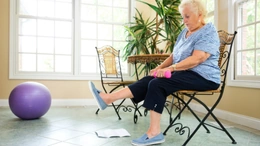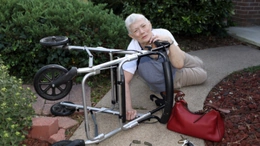National Family Caregivers Month: Resources And Stories That Inspire

National Family Caregivers Month is a time we all celebrate, which occurs in November. It is time that we remember and give respect to the millions who care for loved ones daily.
These caregivers are usually unpaid and provide care to family members who face issues related to illness, disability, or aging. Physically, emotionally, and financially, their work is a heavy demand. Most of them do it because they love to and have a responsibility to.
This month is not only a recognition. It is also an opportunity to shine a light on resources that help and give stories of hope and strength.
Understanding The Significance Of National Family Caregivers Month
In the United States, home care lives on the shoulders of family caregivers. More than 53 million people in the US are unpaid caregivers to an adult or a child, imposing health demands.
They assist with daily activities, manage medications, visit physicians, and offer emotional support. All this is done by most of them when holding jobs, family, and personal health.
This month sheds light on the endless struggles of these people. It was founded in reverence for such people, as well as to create awareness in regard to their difficulties.
Being a caregiver is gratifying, yet burdensome because it might result in stress, burnout, and discouragement. Devoting a month to their cause, we hope it will make society aware of the contribution of caregivers and lead to improved support.
Policy change, workplace flexibility, and more resources are some of the factors that are advocated by this month as well. By seeing that we value care, we make them strong.
We make them realize that they are not alone. There is something inspirational about their stories, and it will leave us all with the notion that compassion and strength prevail.
This caregiver's month is much more than a tribute. It is a wake-up call. It requests communities, governments, and individuals to make more efforts to aid those who aid others.
Essential Resources Every Caregiver Should Know About
Here are the essential resources every caregiver should know about:
Government And Community Support Programs
The programs that aid caregivers in the federal and local states are numerous. Among the primary sources, there is the National Family Caregiver Support Program (NFCSP). It provides respite care, training, and counseling. Area Agencies on Aging (AAAs) provide opportunities for local resources to eligible caregivers.
In certain states, Medicaid also provides aid using Home and Community-Based Services (HCBS) waivers. The following types of services can be assisted by means of these programs: in-home care, adult day care, and personal assistance.
The VA has a program called the Program of Comprehensive Assistance for Family Caregivers that might assist those who take care of other veterans.
Support groups, meals, and transportation services include affiliations to caregivers and their loved ones and are often found at local nonprofit organizations, churches, and community centers. Do not be afraid to inquire about what is available in your area.
Educational Tools And Caregiving Guides
The easier way to give care is with knowledge. A lot of organizations offer free manuals and tools. Practical information on the basics of caregiving, drugs, and emergencies can be found by reviewing the information offered by the Family Caregiver Alliance (FCA) and AARP Caregiving Resource Center.
There is also information coming in a condition-specific form based on the groups, such as the Alzheimer's Association, the American Cancer Society, or even the Parkinson's Foundation.
Learning can be time-consuming and, therefore, stress-free and mistake-free. Online courses or classes in the area are helpful to many caregivers. They show how to move patients without causing injuries, how to handle dementia behavior, and how to go through the healthcare system.
Mental Health And Emotional Support Services
Being a caregiver is very emotionally demanding. Different occurrences of depression, anxiety, and loneliness are normal. That is why mental health support is a necessity.
Caregivers must think about seeing a therapist or a counselor. Such services are covered by many insurance plans. Communities also have free mental health clinics.
The relief comes from joining a caregiver support group either online or in the real world. The comfort to be found in general and specific stories of others, and a listening ear, are beneficial.
It is possible to find the support of peers in such organizations as Caregiver Action Network and Mental Health America.
There are such applications as Headspace or Calm, where people can find mindfulness and stress-relief exercises. Even a few minutes a day may count a lot.
Financial And Legal Assistance For Caregivers
Most of the caregivers are overstrained. Others leave employment or reduce working hours in order to give care. Luckily, there are schemes for assistance.
Depending on state laws, some caregivers are entitled to receive paid family leave. Medicaid, veterans programs, and long-term care insurance may compensate others.
Caregivers are also supposed to prepare legal instruments such as a power of attorney, a living will, and a healthcare proxy. These will see your loved one's wishes honored.
Free legal clinics, or nonprofit legal aid organizations, can help to create or review paperwork. Templates and legal guides may be found on websites such as Nolo.com and AgingCare.com.
Respite Care Options And Time-Off Programs
Nobody can take constant care of another person without taking rest. Respite care is temporary help. It also enables care providers to have rest, go to some appointments, or even go on a vacation.
Respite may be in any form; respite care providers may be in-home helpers, adult training institutions, or temporary assisted living. Some of them are reimbursed under Medicaid, or they are to be provided as local charities.
There are even programs offering volunteers who sit with your loved one for a few hours. Other organizations, such as the ARCH National Respite Network, can assist you in finding services in your local area.
Caregivers are also to discuss family leave policies, even flexible work arrangements, with employers. The Family and Medical Leave Act (FMLA) provides unpaid leave to many companies. Some are even introducing paid caregiving to be taken.
Conclusion
The time of national family caregivers month is a period to commend those who do much and put so much of themselves into it. Armed with the knowledge of raising money and new resources, we can alleviate their load.






















